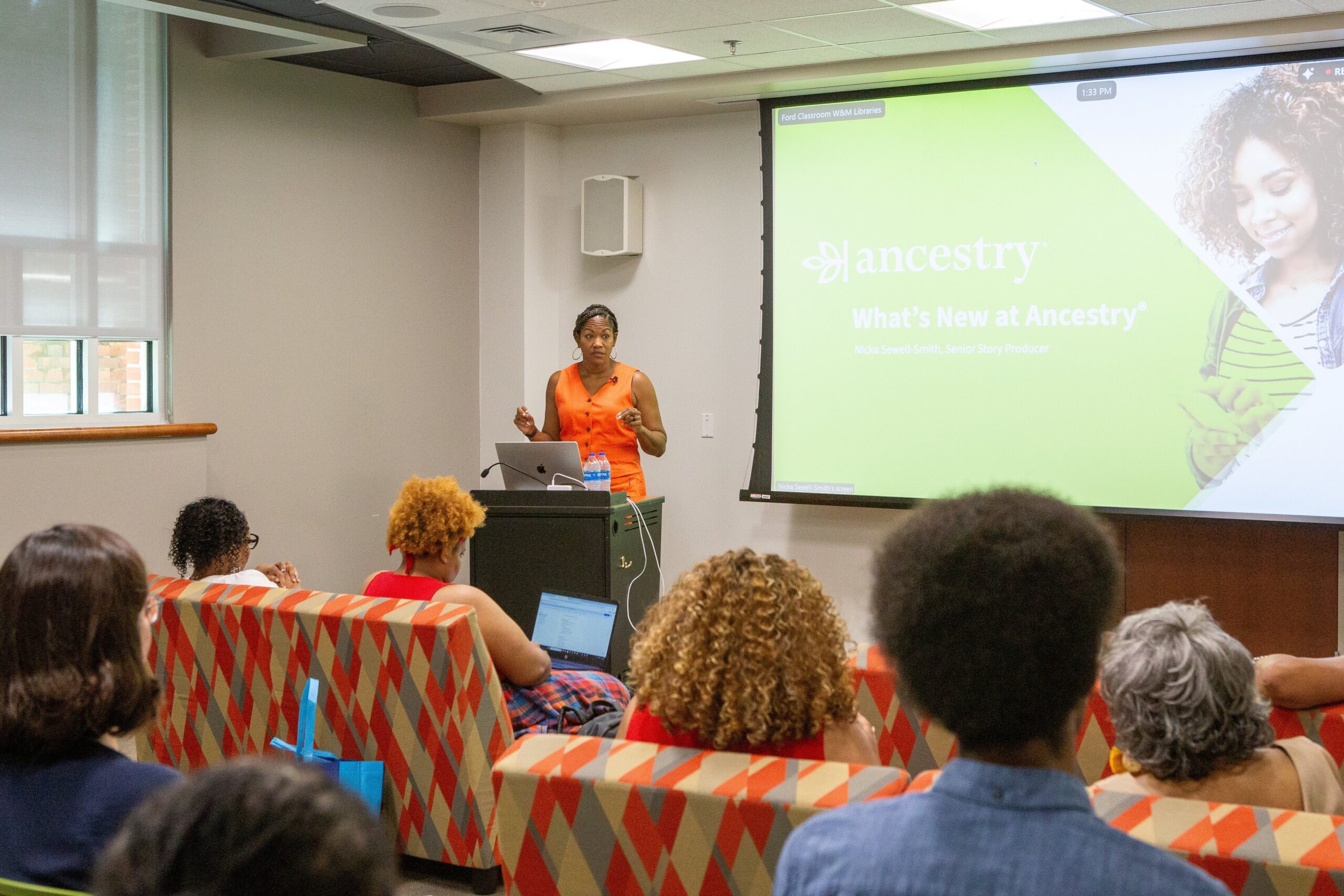By Jajuan Johnson, Ph.D., Interim Robert Francis Engs Director, The Lemon Project
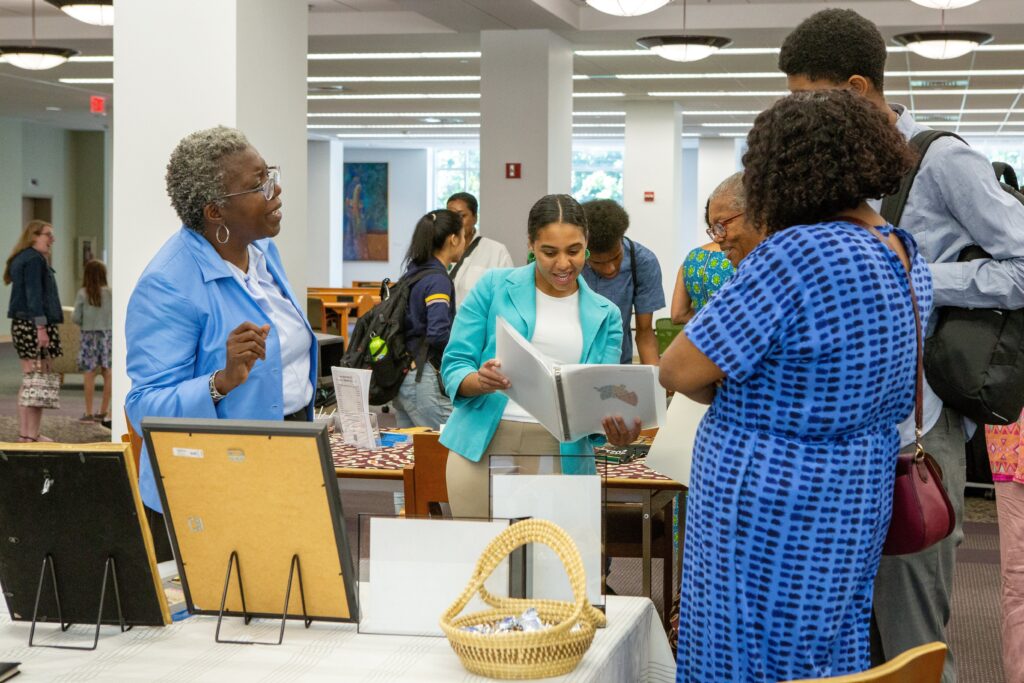
The Lemon Project: A Journey of Reconciliation at William & Mary recently held its 5th Summer Sankofa Genealogical Research Workshop, hosted at Swem Library in collaboration with the Bray School Lab. Gathering both in person and on Zoom, participants from across Virginia and beyond came together to delve into their family histories and explore their ancestral roots.
Originally launched during the COVID-19 pandemic, this workshop series is part of The Lemon Project’s Genealogical Research Initiative, created to connect descendants of those enslaved by William & Mary and to foster a vibrant genealogical community with ties to Williamsburg, James City County, and York County. Since its inception, the workshop has become a space for discovery, dialogue, and reflection—helping attendees research, document, and preserve their family and community histories.
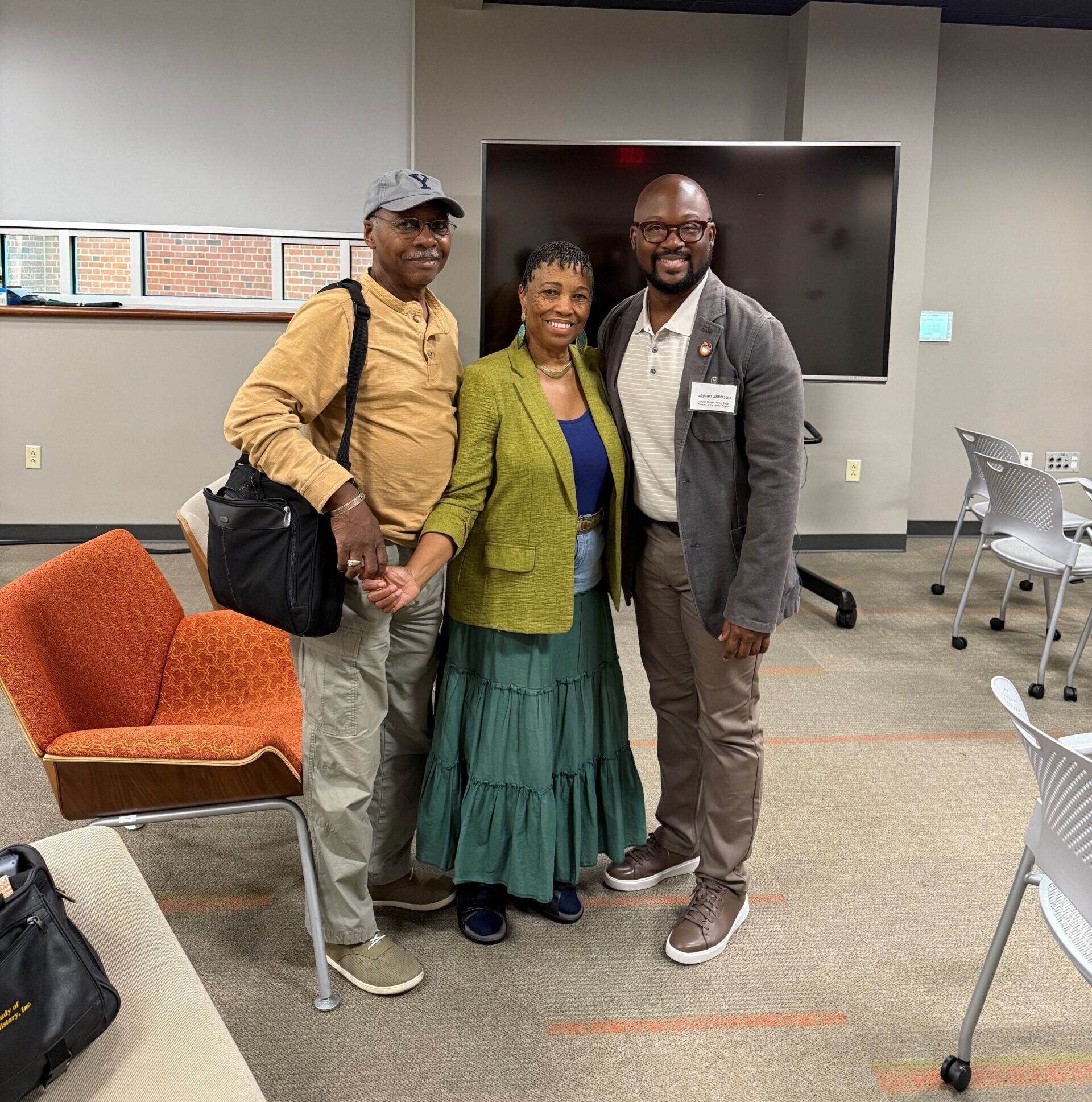
Among the attendees were Barbara and Carl Dunn, who traveled from Northern Virginia to learn more about an ancestor enslaved at Nottoway Quarter, a plantation located in what is now Southside Virginia near the Nottoway River. The couple shared a remarkable family history book that traces their lineage from Africa to the Americas—an example of the deep personal connections uncovered through genealogical research.
Rooted in the Akan concept of Sankofa—which calls us to look back, reclaim our past, and move forward with wisdom—the workshop offered tools and inspiration for participants to explore digital archives, break through research barriers, and share their stories.
The workshop featured several outstanding speakers and facilitators:
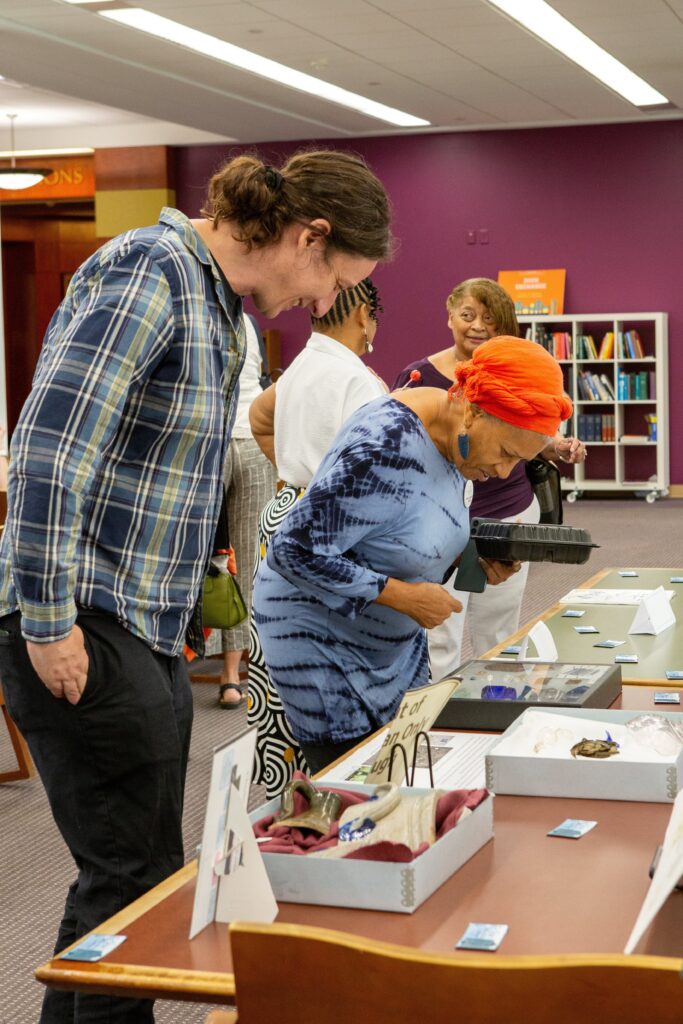
- Lydia Neuroth, Project Manager of Virginia Untold: The African American Narrative at the Library of Virginia, introduced attendees to a rich digital archive documenting the lives of enslaved and free Black and multiracial individuals. She also previewed upcoming expansions to the database.
- Elizabeth Drembus, genealogist at the Bray School Lab, presented on her efforts to trace the descendants of children enslaved and educated at the Williamsburg Bray School between 1760 and 1774.
- Nicka Sewell Smith, Senior Story Producer at Ancestry.com, delivered a powerful keynote on optimizing the world’s largest genealogical database. She also provided one-on-one assistance to participants navigating research challenges, offering encouragement and expertise.
The workshop concluded with a reception and family history showcase, organized by Jessica Ramey, Instruction and Research Librarian at Swem Library. Attendees explored a special exhibit featuring materials from The Reservation, a historic Black community in York County displaced during World War II. Rare items from Swem’s Special Collections Research Center were also on display, connecting local histories to broader national narratives.
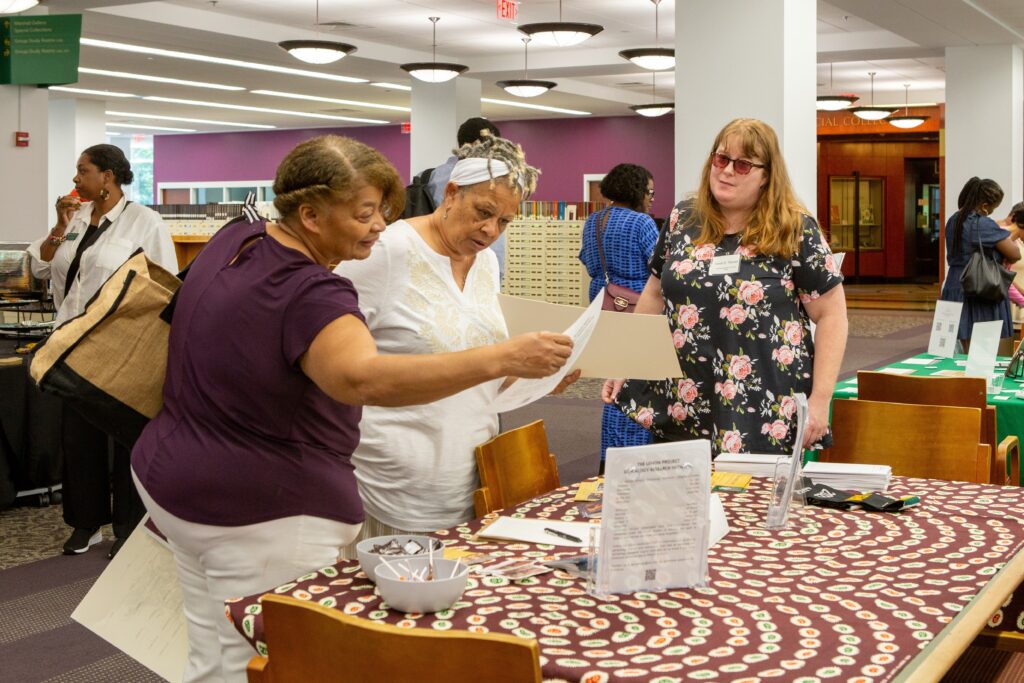
Finally, participants gathered for a tour of the Hearth Memorial to the Enslaved and offered reflections at the Sankofa Seed, a monumental bronze and stainless-steel sculpture by Steve Prince, Director of Engagement at the Muscarelle Museum of Art. The sculpture served as a powerful closing symbol—reminding us that in uncovering the hidden stories of our ancestors, we sow the seeds for a more just and informed future.
The Lemon Project team looks forward to our fall 2025 genealogy roundtable events, where we will continue to build our research community.

